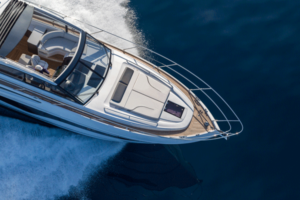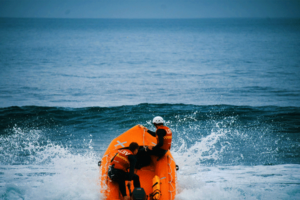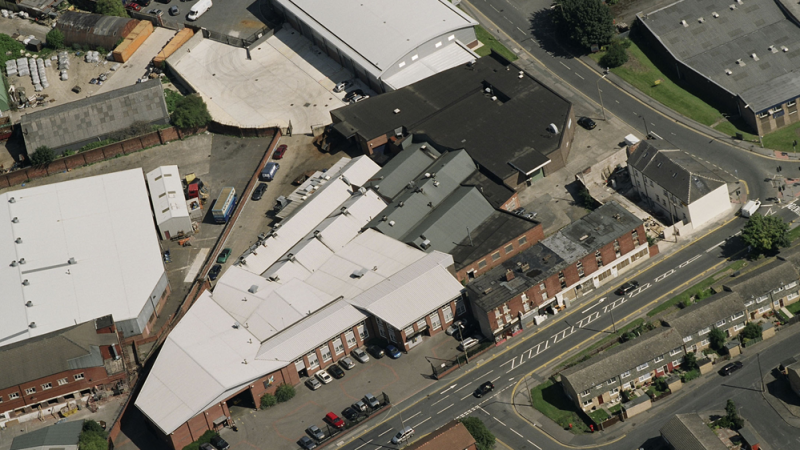For 50 years, Makefast has operated as a design and manufacturing company across the marine and safety sectors. Its products range from life-saving safety hardware to luxury apparatus such as sunroofs and awnings for the leisure marine sector, but Makefast specialises in bespoke products for yachts and superyachts.
“The place we can really compete on is quality,” says Christopher Brown, CEO of Makefast. “We are a relatively small company, so we offer the best products and service that we can.”
The company was started by Brown’s parents in 1974, originally as a small engineering shop in Southampton. Over the years the business expanded and began offering accessories for sailmakers and deck fittings. By 1989 the company had grown to the point where it was looking for a larger factory, and with assistance from the Welsh Development Agency, Makefast established itself in Wales bringing many of its original staff with it.
From there the company has continued to expand to develop an international reach. Makefast is now at the point where its domestic market makes up only 40% of the turnover, with 35% coming from the USA, and the rest coming from a variety of countries in Europe and the world at large. Across its geographical footprint, Makefast is serving customers who are selling into high-end markets, meaning that quality assurance is particularly important.
“Quality is paramount, especially in the marine sector,” Brown says. “We supply direct to boatbuilders, but the customers they sell to demand high standards. If you are buying an expensive yacht, you want it to be the best it can possibly be. As a supplier, you cannot afford to do a bad job. Mistakes are noticeable even on small details such as the finish.”
 A Leaner Operation
A Leaner Operation
To ensure that Makefast can continue to attain those standards while delivering the best value for money, it has been working to implement lean manufacturing techniques across the business. Going department by department, Makefast has been introducing new KPIs, ensuring that everyone from the leadership team to the shopfloor is working according to the same vision.
“It has led to a series of small adjustments that add up to making the whole company run better and more efficiently,” Brown points out. “We had looked at lean efficiency in the past, but never had a formal process in place. This time we formalised it. In the past, we have been guilty of being a bit top-down in our management. This approach gives more agency to people on the ground.”
The scheme started with a single cell of the business, Makefast’s awning team.
“It is one of our biggest products, and so the work we have done here has unlocked some big wins,” Brown says.
It all comes down to Makefast’s philosophy of continuous improvement.
“Continuous improvement is one of our mantras and one of my parents’ mantras,” Brown says. “We try to improve our products and our services and processes every day. We believe we can get better all the time. Sometimes it is a slow process, but we get there.”
Whatever efficiencies Makefast can introduce, however, Brown is aware that the company is made, or broken, depending on the products themselves, which is why product development is such a core part of the business.
“We see a certain amount of blue-sky development. Occasionally we will think of a product we could introduce, and we will develop that, make some prototypes, float it on the market and see how our customers react,” he says. “The other side of our product development comes directly from our customers telling us about problems they face or products they want to see. We work with them and their designers to produce the final product.”
Product development is especially important given the bespoke nature of much of Makefast’s work.
“We have a large product mix, and we don’t manufacture in volumes of hundreds or thousands. We do small batches,” Brown says. “It means that automation is a real challenge. It is not like a production line here.”
Makefast has been looking at automation, however, including robotic and “cobot” solutions.
“We have been receiving assistance from the Advanced Manufacturing Research Centre in Sheffield,” Brown tells us. “They are in the office today, talking to our guys and showing us areas where we can automate.”
 Making Talent
Making Talent
But the human element remains essential to Makefast’s work and Brown is the first to say that recruitment is a recurring challenge.
“We are based in mid-Wales, which means there is not always a huge talent pool to pull from in the local area,” he acknowledges. “But we pay good wages, we have cultivated a nice atmosphere. We are a family company, but ours is not the only family that works here. Among our staff, we have got brothers and sisters, fathers and daughters, mothers and sons. We retain our talent by ensuring we offer a nice place to work.”
Makefast is also investing in the next generation, taking on six apprentices and teaching them every aspect of the trade.
“We have had some superb people come through that program who still work for us, and we have helped to train them up,” Brown says. “We are producing career cards for local schools and staff have done video interviews with them, telling them about working here.”
This is the sort of outreach that has allowed Makefast to grow from a small to a mid-size company, particularly over the last decade.
“It brings its challenges and means you cannot do things the same way you used to, but as a family business, it works well,” Brown reflects. “My brother and I are directors, our parents are still involved as shareholders, and we all work together for the future of the business.”
That future is looking bright, with Brown planning continued growth supported by investment in training and facilities. Makefast has had an office in Italy since 2015, one of the largest boat-building markets in the world, and opened a new office in the US in 2023, growing its network of contacts in the country and paving the way for the start of assembly work in the US.
“We are keen to expand and can offer a lot to a young person starting out in their career,” Brown says. “It’s a big world out there, there is still a lot to explore.”





